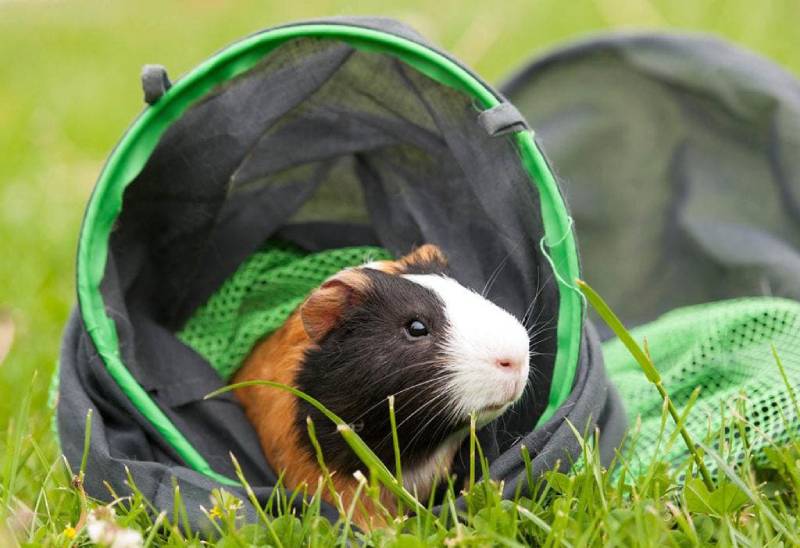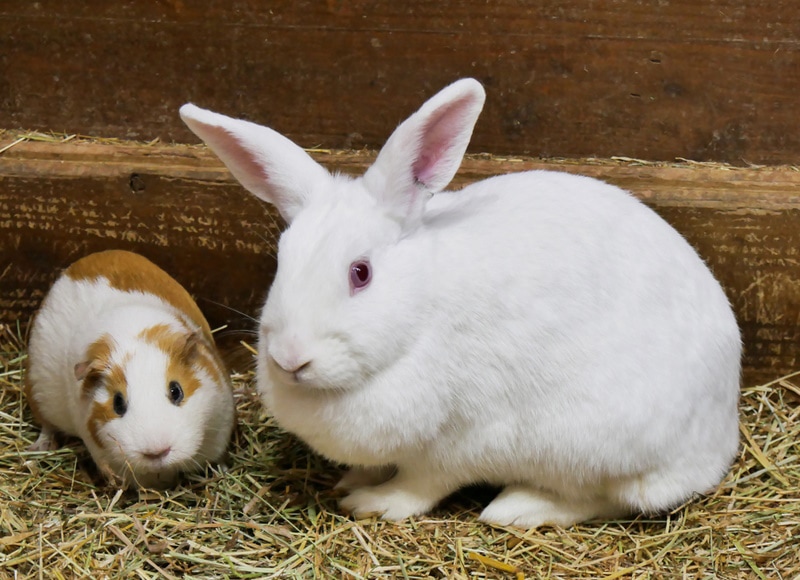Can Guinea Pigs Live Outside? Vet-Reviewed Safety Guide
Updated on
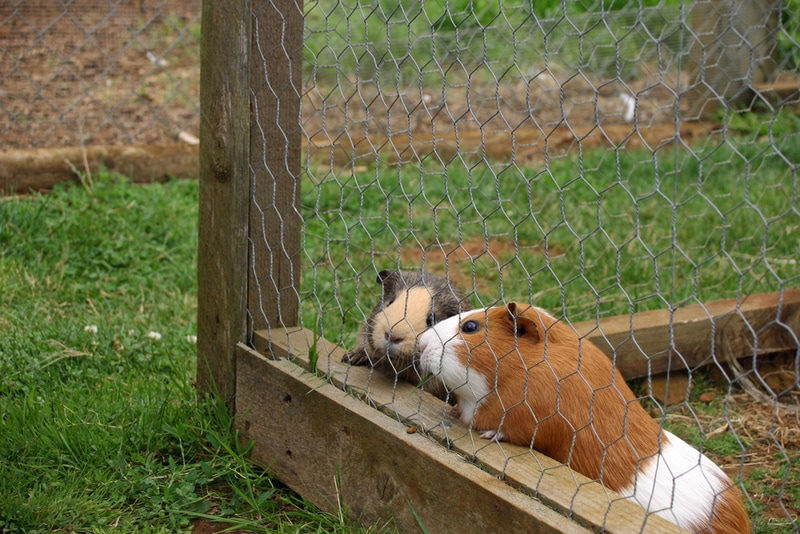
Click to Skip Ahead
Guinea pigs are one of the favorite small animals to keep as pets because of their cheerful personalities and overall cuteness. They are also very active, requiring a big enough enclosure to run around and explore. A question on the mind of many guinea pig owners is whether you can keep your guinea pig outside, and the answer is—yes! Keeping them outside can be good for them and make them happy, but first, you must ensure that you are keeping them safe.
In this article, we’ll tell you how to keep your guinea pig safe and healthy while living outside.
How to Make a Safe Outdoor Enclosure
When keeping your guinea pig outside, you’ll need to keep them in a safe enclosure. Placing them in a garden run is a common way of keeping guinea pigs outdoors, but you’ll want to ensure it’s safe from predators and bad weather conditions. When building the hutch, it should be at least 60 by 40 inches with a big run attached. They are very active, so you want to make the run as big as possible.
When building the hutch, we suggest avoiding cold and rough surfaces because it can hurt their soft feet. The best way would be to keep them on dust-free, clean wood shavings. They should also have enough warm bedding such as hay, which is safe to eat, and a separate sleeping area. It’s also essential for the hutch to be raised off the ground for safety during the night. In the wild, they are prey animals, so you want to make their enclosure full of places they can hide, such as pipes and shelters.
You can also get a playpen from your local pet store and place it on the grass for them to explore and eat during the day, but you should always ensure there is no potential danger for them during that period.
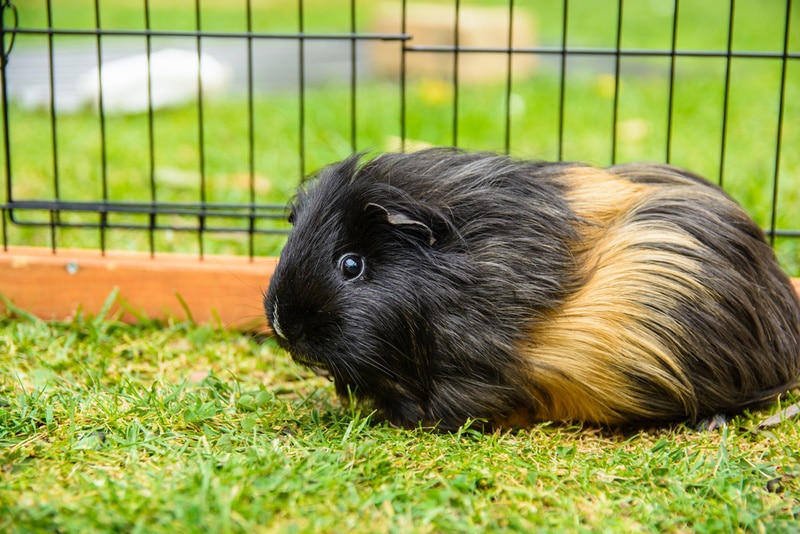
Dealing with Weather Changes
The climate is a significant factor in keeping guinea pigs outside because they are very sensitive to extreme weather changes. During summer, you should always have a side of the enclosure where they can cool off from intense sunlight because exposure to direct sun and hot temperatures can lead to your guinea pig getting heat stroke.
Concerning cold weather, it is recommended that your guinea pig shouldn’t be outside at a temperature lower than 59°F. If you are keeping your guinea pig outside during the winter, we suggest you insulate the hutch very well and keep it out of the path of strong winds. You can also move the enclosure to an outbuilding where it’s safe from wind and rain.
Checking their water bowl/bottle before you go to sleep and in the morning is very important because it can easily freeze in cold weather, so you need to supply them with fresh water frequently.
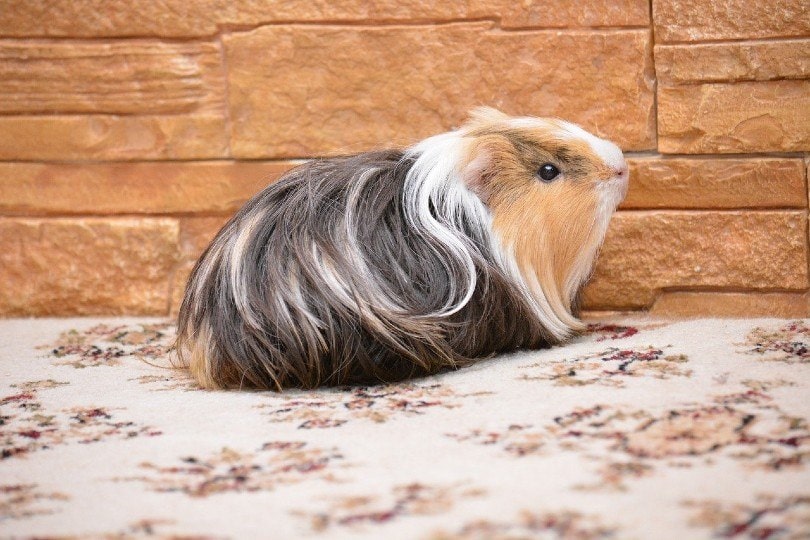
Potential Dangers
As previously mentioned, guinea pigs are prey animals, meaning they are at risk of being hunted by many predators. Common predators of guinea pigs are:
- Foxes
- Cats
- Dogs
- Rats
- Birds
Your role as a responsible owner is to make an enclosure that keeps your guinea pigs safe from predators. It’s a good idea to put steel mesh outside and inside the cage and secure it with bolts and washers. Remember not to keep the hutch on the ground, and if you do, provide a solid base or bury the mesh a few feet underground, preventing any predators from digging under the hutch. Most importantly, it would be best if you never left your guinea pig free in the run during the night and always locked them in the hutch because certain predators attack during the night.
When keeping your guinea pigs outside, keep in mind several other potential dangers:
- Electric cables: These can be dangerous for your guinea pigs because they can chew through them and get electrocuted.
- Plants: Some regular plants kept in gardens can be poisonous for your guinea pig, so we suggest that you keep your pets away from flower beds.
- Herbicides and pesticides: These substances can be highly toxic for your guinea pigs, so keep them away from plants treated with herbicides.
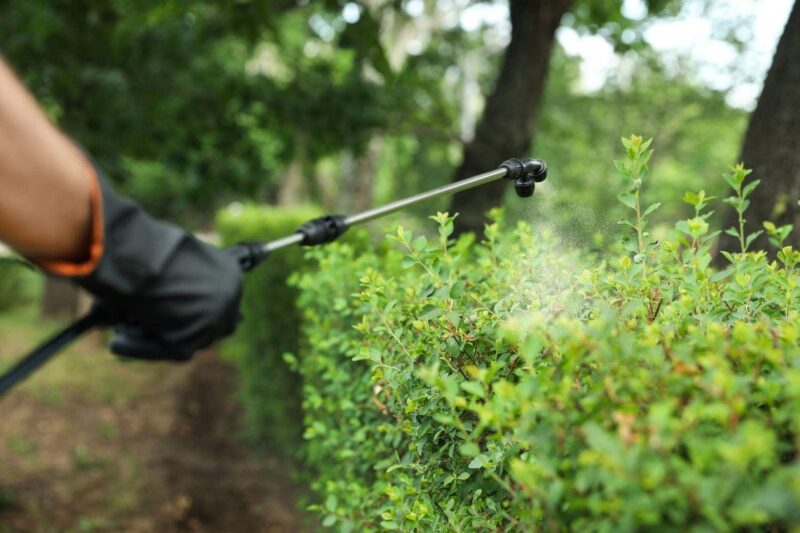
Keeping the Enclosure Clean
Keeping the enclosure clean is crucial for the health of your guinea pig. Cleaning their enclosure should be done regularly because it can quickly get dirty. You should check daily for wet or muddy wood shavings, uneaten food and feces, and remove them from the enclosure. At least once or twice a week the cage should have a deeper clean.
Bad hygiene in the enclosure can lead to health problems like urinary tract inflammation and foot and skin problems. Also, warm weather combined with bad hygiene can lead to flystrike, which targets animals such as guinea pigs and rabbits. This is when blow flies lay eggs on guinea pigs, usually around the bottom area, which then hatch into larvae.
Final Thoughts
Guinea pigs are amazing animals that make great pets. However, as a responsible owner, you want to keep them in the best condition possible to reach their full potential. An enclosure that is safe and big enough should make your guinea pig happy and healthy. With this article, we hope we’ve helped you resolve your doubts about keeping your guinea pig safe while living outside.
Featured Image Credit to JohnatAPW, Shutterstock



